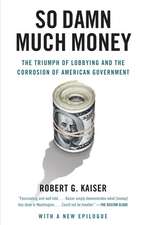Advocacy after Bhopal: Environmentalism, Disaster, New Global Orders
Autor Kim Fortunen Limba Engleză Paperback – iul 2001
The 1984 explosion of the Union Carbide chemical plant in Bhopal, India was undisputedly one of the world's worst industrial disasters. Some have argued that the resulting litigation provided an "innovative model" for dealing with the global distribution of technological risk; others consider the disaster a turning point in environmental legislation; still others argue that Bhopal is what globalization looks like on the ground.
Kim Fortun explores these claims by focusing on the dynamics and paradoxes of advocacy in competing power domains. She moves from hospitals in India to meetings with lawyers, corporate executives, and environmental justice activists in the United States to show how the disaster and its effects remain with us. Spiraling outward from the victims' stories, the innovative narrative sheds light on the way advocacy works within a complex global system, calling into question conventional notions of responsibility and ethical conduct. Revealing the hopes and frustrations of advocacy, this moving work also counters the tendency to think of Bhopal as an isolated incident that "can't happen here."
Kim Fortun explores these claims by focusing on the dynamics and paradoxes of advocacy in competing power domains. She moves from hospitals in India to meetings with lawyers, corporate executives, and environmental justice activists in the United States to show how the disaster and its effects remain with us. Spiraling outward from the victims' stories, the innovative narrative sheds light on the way advocacy works within a complex global system, calling into question conventional notions of responsibility and ethical conduct. Revealing the hopes and frustrations of advocacy, this moving work also counters the tendency to think of Bhopal as an isolated incident that "can't happen here."
Preț: 326.90 lei
Nou
Puncte Express: 490
Preț estimativ în valută:
62.58€ • 64.36$ • 51.92£
62.58€ • 64.36$ • 51.92£
Carte tipărită la comandă
Livrare economică 19 februarie-05 martie
Preluare comenzi: 021 569.72.76
Specificații
ISBN-13: 9780226257204
ISBN-10: 0226257207
Pagini: 488
Ilustrații: 34 halftones
Dimensiuni: 152 x 229 x 33 mm
Greutate: 0.58 kg
Ediția:1
Editura: University of Chicago Press
Colecția University of Chicago Press
ISBN-10: 0226257207
Pagini: 488
Ilustrații: 34 halftones
Dimensiuni: 152 x 229 x 33 mm
Greutate: 0.58 kg
Ediția:1
Editura: University of Chicago Press
Colecția University of Chicago Press
Notă biografică
Kim Fortun is an associate professor in the Science and Technology Studies Department at Rensselaer Polytechnic Institute.
Cuprins
LIST OF ILLUSTRATIONS
ACKNOWLEDGMENTS
PROLOGUE: THE TIMES
INTRODUCTIONAdvocacy, Ethnography, and Complex
Systems
ONEPlaintive Response
TWOHappening Here
THREE Union Carbide, Having a Hand in Things
FOURWorking Perspectives
FIVEStates of India
SIXSituational Particularities
SEVENOpposing India
EIGHTWomen's Movements
NINEAnarchism and Its Discontents
TENCommunities Concerned about
Corporations
ELEVENGreen Consulting
EPILOGUE
APPENDIX
NOTES
BIBLIOGRAPHY
INDEX
ACKNOWLEDGMENTS
PROLOGUE: THE TIMES
INTRODUCTIONAdvocacy, Ethnography, and Complex
Systems
ONEPlaintive Response
TWOHappening Here
THREE Union Carbide, Having a Hand in Things
FOURWorking Perspectives
FIVEStates of India
SIXSituational Particularities
SEVENOpposing India
EIGHTWomen's Movements
NINEAnarchism and Its Discontents
TENCommunities Concerned about
Corporations
ELEVENGreen Consulting
EPILOGUE
APPENDIX
NOTES
BIBLIOGRAPHY
INDEX












